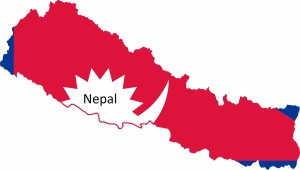Discourse on dignity
 I am still trying to sort out the subtleties of what dignity means to Nepalis, especially to Dalit people and how it translates into the Nepali language. I want to open a dialogue on what it means, particularly since dignity is the lexical standard-bearer of the movement. My preliminary investigation tells me that aadar translates to dignity. Something one gives to another as in the expression aadar dinu.
I am still trying to sort out the subtleties of what dignity means to Nepalis, especially to Dalit people and how it translates into the Nepali language. I want to open a dialogue on what it means, particularly since dignity is the lexical standard-bearer of the movement. My preliminary investigation tells me that aadar translates to dignity. Something one gives to another as in the expression aadar dinu.
Once received, the recipient can feel aadar. Aadar, then implies a social transaction, one that is expected, implied, perhaps supported by the social structure of Nepal and also possibly by interpersonal interactions that occur somewhere beneath the structure. It can be given by one person to another, who can then feel it in turn.
But I would like to move on to the types of respect that are self-generated and do not travel from one person to another. The Nepali word that seems to capture this idea best is aatmasamman.
These notions of dignity need careful investigation, I believe, for a movement to be based upon dignity. How are they experienced, expressed and acquired? To what degree are they related to resilience?
In order to advocate for a society of dignity through a Dignity Initiative, there are so many things that the new Dalit scholar needs to do. I will focus on four of them and I would like to point out that each of these principles reflects on all parts of the academic endeavour, especially as it relates to the public. These are not exhaustive, but they are a start.
Shine a light
The first step to dignifying Dalits as people and their causes as ones that matter is to consistently, and with firmness and clarity address Dalit issues directly and without apology. This is important for the simple and compelling reason that caste is clearly, along with gender, the most important social and political organizing principle in Nepal. This simple, easily observable fact is just as easily denied by stakeholders whose interests are more easily pursued if caste is denied. Denial can be extreme, some parties claiming that, “caste does not exist.”
I think it is critical to social science thinking that the unique contribution of Dalit conditions to understanding of the large social phenomena that transcend issues of caste should be highlighted. Make your work about big academic issues and demonstrate that only by including a Dalit perspective can you offer a complete theory of those issues.
Academic integrity
By academic integrity, I suggest how your writing reflects your living and your living reflects your writing. If we write that we advocate social equality, then, I believe we must live it. If a Dalit believes that caste intermarriage should be free and uninhibited, then he should be thrilled to have his son or daughter marry a Dalit of lower standing than his own. If he believes that Brahmans should accept food from a Damai, then if he is Bishwokarma, he should be willing to accept food from a Gandharva.
To excellence
Striving for excellence is an old, worn platitude, but one that persists because of the power that excellence embodies. High level scholarship among Dalits in Nepal is a new thing—very few Dalits have advanced degrees, very few have positions of faculty in university, administrators in NGOs or are advisors to Donor Agencies.
But, excellence is there. Excellence will speak for itself and will be a source of dignity from within and one that others will quickly come to recognize, to offer and to do. If your work stands as the best social science in Nepal, then academic work itself will be a major part of the platform from which your initiative to instil Dalit lives with dignity can be based.
Advocate for dignity
The final point would be to Advocate for Dalit dignity in the topics you choose to study, in the theoretical foundations you follow, in the titles of your papers and books, and in the bodies of your work. Tie the Dalit experience to issues meaningful to the academy but also to the audiences outside the academy, to government officials, planners and implementers of programs, to representatives of NGOs and INGOs, and of donor agencies, to leaders of businesses and industry and to community stakeholders.
Show political relevance, economic importance, public health consequence, and the social impact of the work you do. And present your work in such a way as to highlight why the word Dalit should be capitalized, why Dalits’ views should be presented first, before the views of Brahmans or others, why data about Dalits should come first on tables and charts and why the conclusions should speak first to Dalit issues and demonstrate that by elevating the dignity of Dalits, the dignity of all people increases.
It is up to the Nepali Dalit scholars to bring Nepali society around to a new understanding of what it means for this country to adhere to a new brand of social justice, one focused on recognizing the dignity in all of us, and to help usher in this new era, this nayayuga, based on principles of mutual respect and, above all, for you to be the embodiment of dignity in the way you conduct all your academic endeavours.
Source: Republica





